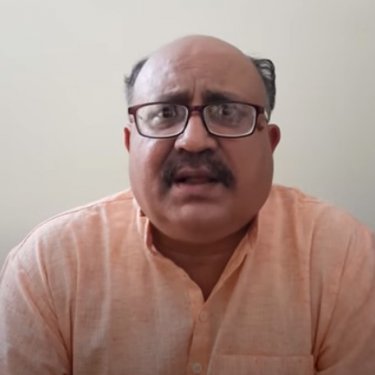Indian journalist, specialist in defence, arrested for “spying” for China

Reporters Without Borders (RSF) calls for Indian freelance journalist Rajeev Sharma’s
immediate release in the absence of solid evidence to support Delhi police claims that this specialist in defence issues supplied “classified documents” to Chinese intelligence agents in exchange for payment.
A court yesterday ordered another seven days of “custodial interrogation” for Rajeev Sharma, who was arrested under India’s Official Secrets Act on 14 September for allegedly passing “sensitive information” to Chinese intelligence.
That is what members of the Delhi police “special cell” claimed at a press conference on 18 September. They said Sharma had received a total of 3 million rupees (34,400 euros) for information supplied to two agents working for Chinese intelligence, a Nepalese man and a Chinese woman, who have also been arrested.
However, the police did not specify the nature of the documents or produce any hard evidence to support their allegations. The Press Club of India, whose members include many New Delhi-based journalists, has questioned the claims, recalling two previous cases in which the Delhi police special cell arrested journalists on charges that subsequently proved to have been completely fabricated.
Collateral victim
A specialist in covering defence and strategic issues, Sharma is loathed in Indian nationalist circles and has repeatedly been the target of attacks on Twitter, attacks that immediately intensified when his arrest was reported.
“As long as the New Delhi police fails to produce hard evidence of Rajeev Sharma’s alleged involvement in this unexplained spying case, his detention will be regarded as arbitrary,” said Daniel Bastard, the head of RSF’s Asia-Pacific desk. “He must therefore be released at once, or else his detention constitutes intimidation of all journalists, especially those covering national security issues. Rajeev Sharma must not be the collateral victim of the increase in tension between India and China.”
Respected by many of his fellow journalists, Sharma writes for various outlets and has a YouTube channel entitled “Rajeev Kishkindha” on which he posted two videos on the day of his arrest.
In the first, he cautioned Indian negotiators trying to resolve border disputes with China against further “mischief” by China. Indian nationalism and hostility towards China among some of the population has been exacerbated by a clash between Indian and Chinese soldiers in a disputed Himalayan region in June involving losses on both sides, including the deaths of 20 Indian soldiers.
In the second video, posted just before his arrest, Sharma criticized the Indian media’s growing subservience to the current government.
India is ranked 142nd out of 180 countries in RSF's 2020 World Press Freedom Index.



